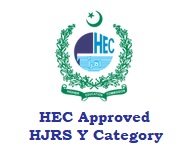Evaluating the impact of climate change on the agriculture sector of Pakistan using Multi Criteria Decision Making (MCDM)
DOI:
https://doi.org/10.47264/idea.nasij/3.2.6Keywords:
Fuzzy VIKOR, Fuzzy number, climate change, agriculture, crops, tobacco, sugarcaneAbstract
In Pakistan, the agriculture sector plays a fundamental role in the economy's growth. However, this sector also faces many problems due to the drastic climatic variation. To handle this problem, we need to investigate the critical atmospheric changes and how they affect the major agricultural crops. Therefore, the purpose of this study is to examine the influence of climatic diversity on agricultural crops of the country using a Multi-Criteria Decision Making (MCDM) approach. The fuzzy VIKOR method has been used to describe the impact of atmospheric factors such as high temperature, heavy rainfall or sleeting, drought, smog, heat waves, poisonous gases, associated humidity, and storms on the agriculture sector of Pakistan. The results indicate that high temperatures and storms are the most critical climate factors which affect agricultural crops. Furthermore, it indicates that tobacco is the most sensitive crop to climate change, whereas sugarcane is the least affected by these climate changes. By analyzing and evaluating the impact of these climate factors, we can efficiently plan to cultivate these crops in areas that are least vulnerable to the adverse effects of these climate changes.
Downloads
Published
Issue
Section
License
Copyright (c) 2022 Ihteram Ali, Noman Khan

This work is licensed under a Creative Commons Attribution-NonCommercial 4.0 International License.
Please click here for details about the Licensing and Copyright policies of NASIJ.








